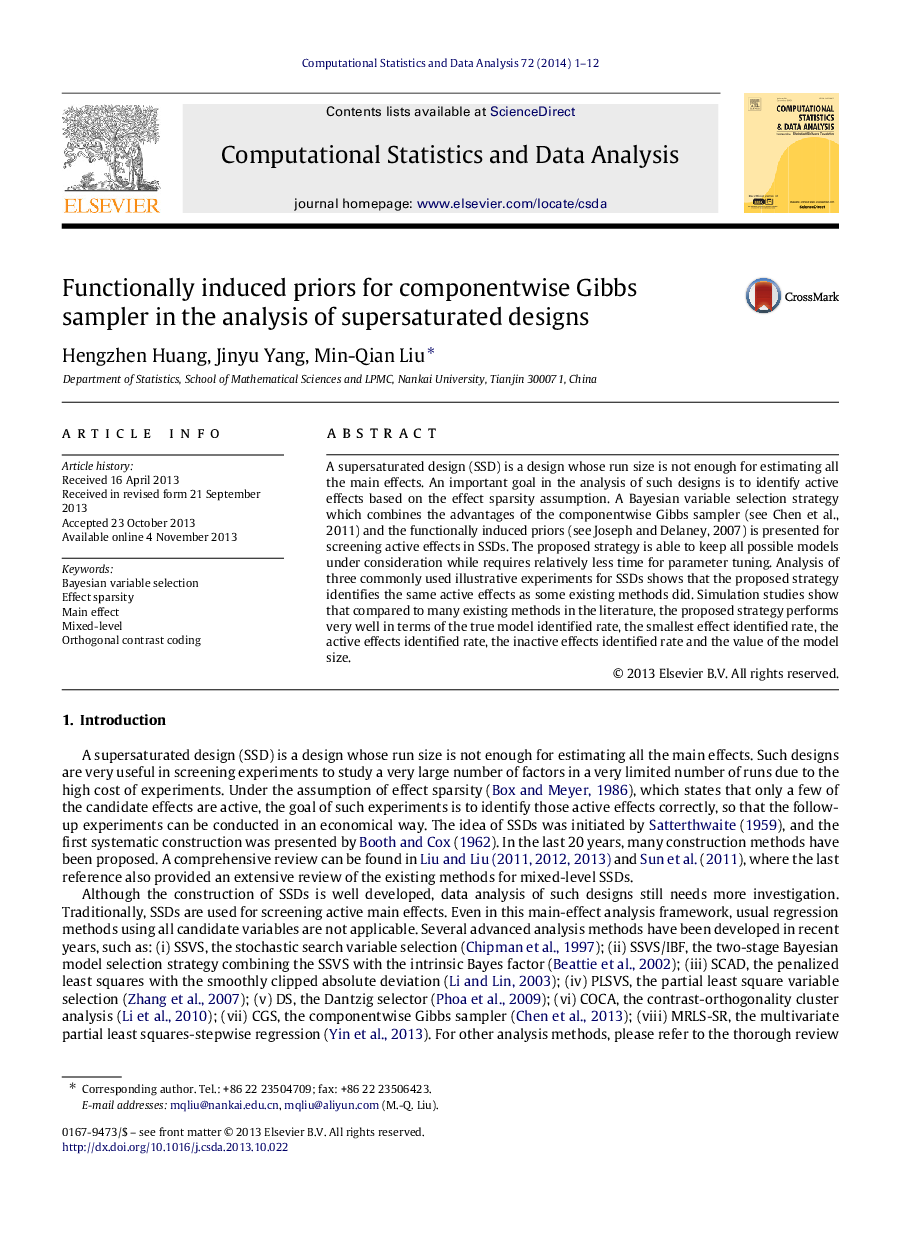| Article ID | Journal | Published Year | Pages | File Type |
|---|---|---|---|---|
| 6870227 | Computational Statistics & Data Analysis | 2014 | 12 Pages |
Abstract
A supersaturated design (SSD) is a design whose run size is not enough for estimating all the main effects. An important goal in the analysis of such designs is to identify active effects based on the effect sparsity assumption. A Bayesian variable selection strategy which combines the advantages of the componentwise Gibbs sampler (see Chen et al., 2011) and the functionally induced priors (see Joseph and Delaney, 2007) is presented for screening active effects in SSDs. The proposed strategy is able to keep all possible models under consideration while requires relatively less time for parameter tuning. Analysis of three commonly used illustrative experiments for SSDs shows that the proposed strategy identifies the same active effects as some existing methods did. Simulation studies show that compared to many existing methods in the literature, the proposed strategy performs very well in terms of the true model identified rate, the smallest effect identified rate, the active effects identified rate, the inactive effects identified rate and the value of the model size.
Related Topics
Physical Sciences and Engineering
Computer Science
Computational Theory and Mathematics
Authors
Hengzhen Huang, Jinyu Yang, Min-Qian Liu,
